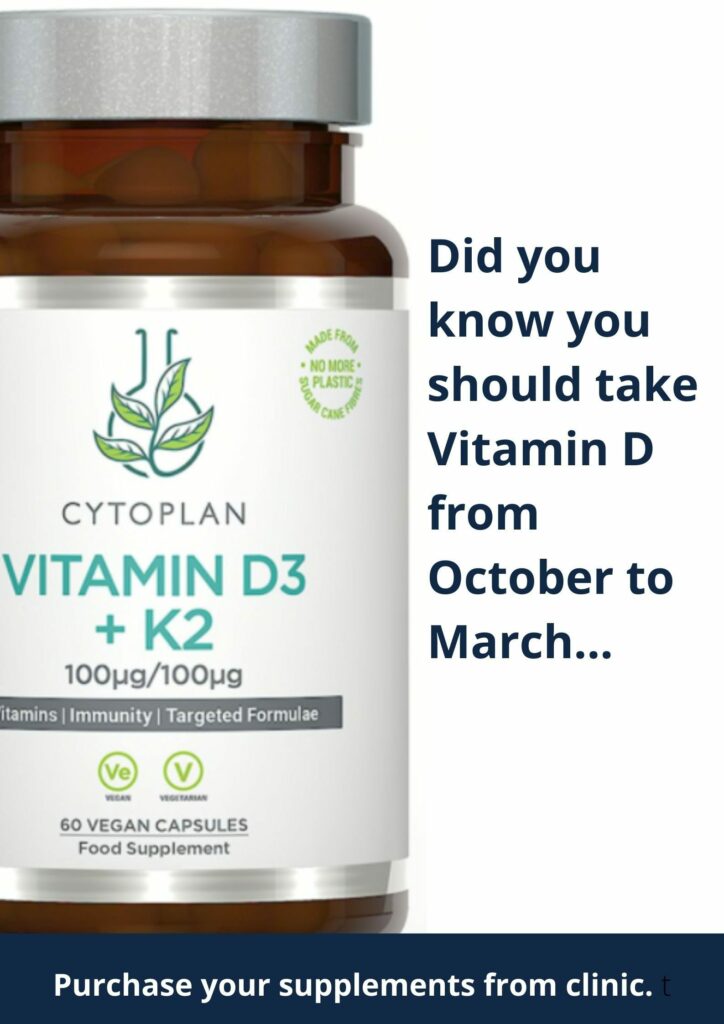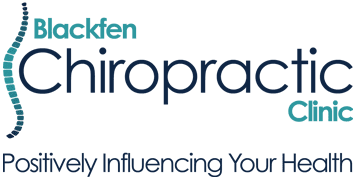Also known as “The Sunshine Vitamin” because sunlight is necessary for the body to make its own vitamin D in the skin.
During Autumn and Winter, the sun in the UK (as you might have guessed!) is not strong enough to help us produce Vitamin D. This means that we have to rely on getting Vitamin D just from food (e.g. tuna, salmon, cheese, egg yolks) we eat, but we also know that it’s difficult to get enough Vit.D from food alone. Taking a supplement helps to keep the levels of the vitamin topped up through the colder, darker months.
Some people with a higher risk of low Vitamin D levels may want to consider supplementing throughout the year, including young children, people with dark skin, and people who have limited skin exposure to sunlight, e.g. people in care homes.
Vitamin D helps with
- Normal absorption/ utilisation of calcium (a nutrient that helps to make your bones strong).
- Maintaining normal bones and teeth.
- Maintaining normal muscle function.
- Normal function of the immune system.
- Normal growth and development of bone in children.
The NHS are recommending that people with low vitamin D levels to supplement as they are at a higher risk of catching Covid-19. Vitamin D helps bolster the immune system to tackle viruses that attack the lungs.
Vitamin D levels should be tested at least annually if you are supplementing.





